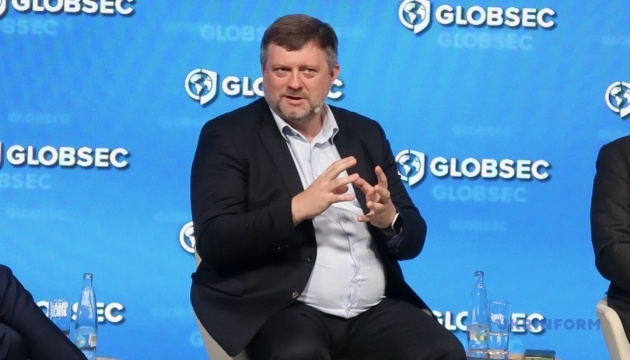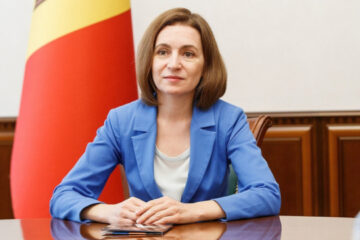
First Deputy Speaker of the Verkhovna Rada Oleksandr Korniyenko believes it is possible for Ukraine to join the European Union as part of a “package” together with Balkan countries that have long been on the path toward EU accession.
He said this in an exclusive comment to an Ukrinform correspondent.
“We are in favor, not against. Let’s all join together in a package, and let’s do it quickly,” he said.
At the same time, he noted that this would require all participating countries to do their “homework,” since many of them, like Ukraine, face complex regional issues. He emphasized the lingering influence of the Russian Federation in the Balkans, a region historically known for its volatility. Therefore, Ukraine would need to coordinate positions not only with Balkan countries but also with key southern EU players like Greece, Italy, and Austria.
Korniyenko stressed that Ukraine is moving ahead with its EU accession “homework” at an accelerated pace and is ready to engage with any partners who might put up obstacles along the way.
“We are ahead of schedule. Our plan was to open two clusters at the intergovernmental conference in June, and had Hungary not blocked it, we would have already held that conference in Poland and opened those clusters. The third one is already ready. By the end of the year, screening for all six clusters will be completed. This is a joint achievement of ours and Brussels,” he said, thanking the European Commission for its close cooperation and continued support.
Ukraine is now in a phase Korniyenko described as a “struggle for its own accession trajectory,” and is committed to implementing reforms and continuing the legislative alignment process regardless of the status of the clusters.
“We will continue this work. We are adapting legislation regardless of whether the clusters are open. We have the Ukraine Facility — a massive program containing numerous laws that will prepare our country for accession. As a responsible country, we must do our homework,” he said.
Ukraine, he said, is aware that time is limited, and there is a clear understanding that the country must be ready to join the EU “very quickly” so that, when political obstacles are removed, the process can move forward without delay.
At the same time, Korniyenko said that legislative screening and cluster readiness must go hand-in-hand with diplomacy with individual member states.
“From the very beginning, it was clear that 27 countries means 27 political decisions, and there are about 30 stages. Any country can block or impose conditions at any point,” he said.
“Yes, we don’t like it, and we must advocate for a less politicized approach. It’s frustrating that for a country like Ukraine — currently defending Europe and acting as a key contributor to European security, as the eastern stronghold of the EU — the accession process is being stalled due to political reasons,” he said.
Regarding recent statements from Poland’s newly elected president opposing Ukraine’s accession at this stage, Korniyenko acknowledged: “Yes, there are questions, there are problems. We will look for solutions. We will engage in dialogue.”
He noted that Ukraine has always maintained an open dialogue with Poland and that progress has been made on contentious issues — something even the new Polish president has recognized publicly. There are ongoing efforts in areas such as historical reconciliation, cultural cooperation, and the work of the ministries of culture and foreign affairs. Ukraine is also ready to discuss concerns in the agricultural sector.
“We’ve approved the negotiation position on the cluster related to competition and markets. In this area, the Polish side can be confident that Ukraine is a partner, and we will approach these matters in a neighborly, cooperative way,” Korniyenko said.
He emphasized that the real issue is the strategic direction of a united Europe.
“We would like to see the EU move toward even greater unity, deeper integration, and, as a result, greater security. This wave of enlargement is ultimately about security. So let’s work together on solutions for expansion. It’s not about who is better or worse — we must work together so that by 2030, there are members of the European Parliament representing all countries currently on the path to joining,” Korniyenko said.
As previously reported, Hungary has persistently created obstacles for Ukraine’s EU accession. Poland’s newly elected President, Karol Nawrocki, recently said he does not currently support Ukraine’s entry into the EU — although he emphasized that Poland should continue to support Ukraine from a strategic and geopolitical perspective.
Source: Korniyenko: Ukraine could join EU alongside Balkan states as part of single accession package



